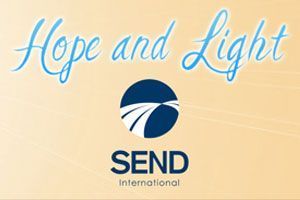
Fruitful Practices #3-Varied Use of Scripture
Fruitful Practices
In previous “Fruitful Practices” articles, we have written about the importance of prayer and of learning the local language . If you missed those entries, I would encourage you to go back and check them out. The eight fruitful practices we are covering with this series of articles, are common patterns observed in places where Muslims are coming to Christ. They are not perfect formulas that produce an automatic result; rather, they are patterns that many have seen bearing fruit in difficult contexts, and we want to offer them to you as tools. In this issue we will be looking at fruitful practice #3- the varied use of Scripture.
Stocking Your Toolbox
 Every carpenter, plumber, and electrician carries a toolbox. Inside that toolbox is an assortment of tools that facilitate his work. It is up to the tradesman to determine the right tools for the right job. In a similar way- every believer has, at his or her disposal, a variety of tools to carry in his or her “toolbox.” These tools include the printed Bible, memorized verses or stories from the Bible, audio tapes of the Bible, films about the Bible and Jesus, websites that contain the Bible in downloadable forms, Christian music, etc. The effectiveness of such tools multiplies when they are made available in a multitude of languages. When these tools are strategically and intentionally used, they help to facilitate the “varied use of Scripture.”
Every carpenter, plumber, and electrician carries a toolbox. Inside that toolbox is an assortment of tools that facilitate his work. It is up to the tradesman to determine the right tools for the right job. In a similar way- every believer has, at his or her disposal, a variety of tools to carry in his or her “toolbox.” These tools include the printed Bible, memorized verses or stories from the Bible, audio tapes of the Bible, films about the Bible and Jesus, websites that contain the Bible in downloadable forms, Christian music, etc. The effectiveness of such tools multiplies when they are made available in a multitude of languages. When these tools are strategically and intentionally used, they help to facilitate the “varied use of Scripture.”
Varied Use of Scripture
As Christian workers interacting with those who do not know Jesus, we need to learn to discern what tool to reach for in any given context or situation. Every person is different, and needs to be treated and responded to as an individual. Some individuals might need a hard copy of the Bible in their language. Others may not be ready to receive a Bible, but are open to hearing Bible stories. Others still, are moved by Bible verses or pithy proverbs. A printed Bible may not be helpful to those who are illiterate or functioning in a second or third language. Instead, these individuals need the Bible in an audio format (SD card, DVD, MP3, radio, etc), or they need to hear Scripture orally. Additionally, the Jesus film, Magdalena, and other faith-based films have been translated into hundreds of languages and used to share the Gospel in a very powerful way. Since all people are different, what resonates well with one person, might not work well with another. The better you know the various tools available to you, the more effective you will be in choosing the right one for each situation and context.
Benefits of Scripture Memorization
 There is an added bonus of committing Scripture to memory. As we share it with others, we are blessed by it as well. The Psalmist says in Psalm 119:105, “Your Word is a lamp to my feet and a light for my path.” Meditating on God’s Word will reap a benefit to you and to those you serve! Get to know the people you are trying to reach and pray for discernment about which medium of Scripture would be best for your friends. There is no single way to most effectively teach the Scriptures, so teams must evaluate the local situation to discover the most appropriate ways.
There is an added bonus of committing Scripture to memory. As we share it with others, we are blessed by it as well. The Psalmist says in Psalm 119:105, “Your Word is a lamp to my feet and a light for my path.” Meditating on God’s Word will reap a benefit to you and to those you serve! Get to know the people you are trying to reach and pray for discernment about which medium of Scripture would be best for your friends. There is no single way to most effectively teach the Scriptures, so teams must evaluate the local situation to discover the most appropriate ways.
Hebrews 4:12~ “The Word of God is living and active. Sharper than any double-edged sword, it penetrates even to dividing soul and spirit, joints and marrow; it judges the thoughts and attitudes of the heart.”
Read about Fruitful Practice #2- Language Fluency.
Sign up for the quarterly SEND Hope & Light E-newsletter to learn about our Muslim ministry teams.
Discover new opportunities to partner with SEND in Muslim Ministry.
Additional Posts




